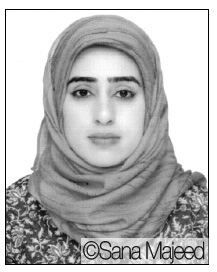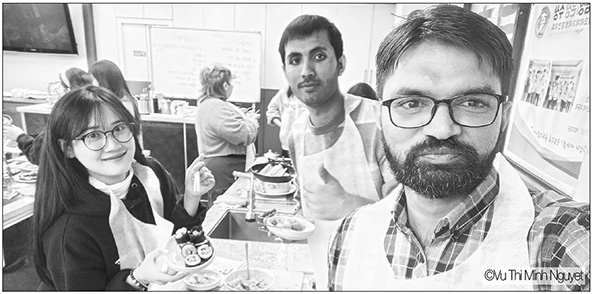CBNU has active relationships with 289 cooperative institutions around the world, and 1,406 foreign students on campus. In response, CBT looked at the International Student Support Center(ISSC) at the Office of International Affairs of CBNU, which operates various support programs for the stable settlement of foreign students, and gathered the opinions of foreign students who have participated in various programs.
CBNU International Student Support Center (ISSC)
The purpose of the foreign student support programs is only to ensure that foreign students who enter CBNU settle down and return home stably with their diplomas without giving up their studies or having an accident. Representatively, ISSC has four programs to stabilize the overall university lives of foreign students.
1. Korean Language Learning Program
To improve the Korean skills of foreign students, a Test of Proficiency in Korean(TOPIK) level-up camp is run for three weeks, during the vacation, every semester to help them get TOPIK-4 level or higher.
2. K-Culture Program
To enhance the understanding and appreciation of Korean culture, various K-Culture programs are operated. Such as, Let’s Enjoy K-Food, which is a Korean food-making and tasting experience, and Let’s Enjoy K-Movies, which is watching Korean movies and networking with foreign students.
3. Advisor Program for New Foreign Students
It is a program that enhances foreign freshmen’s university experience. Korean senior foreign students who are already studying at CBNU, become advisors for new foreign students. The main roles include how to use the academic affairs system, campus tours, making student identification cards, opening bank accounts, buying things in the market, immigration works, Korean language guidance, etc. In the first semester of 2024, 12 advisors will assist 51 new foreign students.
4. Psychological Counseling for Foreign Students
ISSC has a counseling room exclusively for foreign students, so they can consult through e-mail, KakaoTalk, and in-person visits at any time. In addition, foreign students who make use of the consultation room of the ISSC will be eligible for the lifelong counsellor system-linked consultation program.
On top of that, ISSC operates support programs for foreign students such as stay support (alien registration and application for extensive stay), career management, and foreign student association activity expenses.
Interview with ISSC Program Participants
Sana Majeed (Ph.D. from the College of Veterinary Medicine, Pakistan)

Hello, My name is Sana Majeed. I am from Pakistan. I was admitted to CBNU in 2022 under the Global Korean Scholarship. I am doing a Ph.D. in Preventive Veterinary Medicine in the Faculty of Veterinary Sciences.
Q. Please give an explanation about the ISSC program which you participated in.
I had the privilege of participating in an “Advisor Program for New Foreign Students” to assist new students in acclimating smoothly to life at CBNU. I offered guidance and support in obtaining essential documents such as residence cards, bank accounts, and student identification cards. One key role was introducing students to the various facilities and amenities available on the campus, such as a library, cafeteria, post office, and health center. Moreover, I took the opportunity to familiarize students with essential online platforms, including the university’s website for course registration and the e-campus portal. Beyond campus boundaries, advisors organized city tours to showcase both the vibrant urban landscape and the rich Korean tradition and culture tapestry.
Q. Why did you participate in this program and what you felt?
When I joined CBNU as a foreign student, I faced significant challenges adjusting to the language barrier and the unfamiliar cultural environment. My struggles inspired me to participate in this program, driven by a deep-seated desire to ensure that other students would not encounter similar difficulties. I aimed to provide support and guidance to incoming students, helping them navigate the complexities of university life with greater ease and confidence. The experience of being part of this program has been immensely rewarding, as I witnessed firsthand the positive impact it had on studentsʼ lives, fostering a sense of belonging and empowerment within the international student community.
Q. Based on your experience of participation, did you have any thoughts on the direction of the ISSC programs?
ISSC programs can be improved by enhancing orientation sessions to cover cultural adaptation, expanding language support services, diversifying cultural experiences beyond sightseeing, and promoting integration between domestic and international students. By addressing these aspects, support programs can better meet the evolving needs of international students. Also, they can create a more inclusive and supportive environment for their academic and personal success.
Q. What do you want to say to CBNU’s foreign students?
To all international students currently enrolled at CBNU, I want to extend a warm welcome and offer some words of encouragement. Embracing this opportunity to study abroad is an incredible journey with challenges, but remember that you are not alone. Make the most of the support programs available, whether it is language assistance, cultural immersion activities, or academic guidance. Engage actively with your peers and professors, seek new experiences, and do not hesitate to ask for help when needed. Your time here is not just about academics but also personal growth and cultural exchange. Embrace every moment, stay resilient, and enjoy the enriching experience of studying at CBNU.
Vu Thi Minh Nguyet (Dept. of International Business, 23, Vietnam)

▲ Vu Thi Mihn Nguyet on the left is getting on K-Food program.
Q. Please give an explanation about the ISSC program which you participated in.
The K-Food program led by ISSC was a truly memorable experience for me. It was an opportunity to understand Korean culture as well as knowledge of cooking while preparing called tteokguk (rice cake soup) and gimbap, the representative foods of Korea. The process of making tteokguk, gimbap, and soup was a journey to explore the origin and meaning of food in a different culture from Vietnam. In particular, the meaning of tteokguk eaten by Koreans on Lunar New Year’s Day, a holiday commemorating the first day of the new year, was interesting. There are three main meanings of tteokguk: new beginnings, longevity, and good fortune. In Korea, it means that everything starts anew from the Lunar New Year, and it is said that Koreans ate tteokguk boiled with white rice cake in fresh water to cleanse their mind and bodies. Furthermore, I learned that the white color of rice cake represents solemnity and cleanliness, so there is also a meaning of washing away bad things and wishing for only good things. The length of the rice cake means living for a long time, and good fortune. In addition, the fact that each region has a different garnish in tteokguk also made me want to explore areas other than Cheongju.
Q. What did you feel about the K-Food Program?
The program was an opportunity to interact and communicate with other foreign students and program instructors at the ISSC. Sharing cooking experiences and enjoying meals together in an unfamiliar environment was not only a good way to get used to university life but also an opportunity to bring about intimacy in the learning environment. In addition, participating in this program was a challenge for me, but it gave me confidence in making food from other countries, such as selecting and preparing ingredients and cooking soup, and made fun memories of enjoying meals with new people. This memory will surely be an important and special part of university life in Korea. In particular, I would like to express my gratitude to ISSC for providing me with the opportunity to make good memories that will remain in my heart in Korean culture and university life.
Q. What do you expect from ISSC programs?
It would be desirable for the program to offer more intensive language support, including advanced language courses and opportunities for immersive language practice. Additionally, fostering greater integration between domestic and international students through joint cultural activities and peer mentoring programs would enhance cross-cultural understanding and enrich the overall university experience for all students. In this article, CBT has explored various foreign support programs run by the ISSC at the Office of International Affairs and the opinions of foreign students who participated in them. Based on this, it is clear that ISSC is playing a vital role in assisting foreign students as they embark on their journey in Korea. Some foreign students suggested that ISSC could pay a little more attention to the quality of the current program through constant exchanges with foreign students.
At the same time, as foreign students take their first steps in an unfamiliar environment, they will inevitably be confronted and challenged by their inability to communicate freely in a foreign country, so they will need a lot of attention and help from fellow students.
By Jeong Ha-yeon
hayeon0330@chungbuk.ac.kr


 All
All Feature
Feature






 Jeong Ha-yeon
Jeong Ha-yeon











